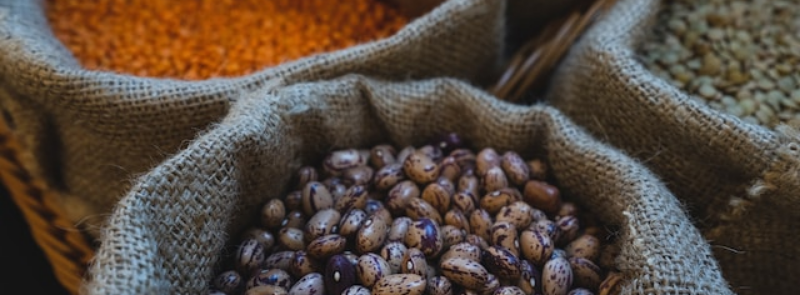
When It Occurs
Every February 10th
Official Website
Timeline
Days Passed (1108)
# Hashtags
#WorldPulsesDay #SuperFood
World Pulses Day is a globally recognized event designated by the United Nations to underscore the significance of pulses, including chickpeas, dry beans, lentils, dry peas, and lupins, as a vital component of the global food supply. Proclaimed by the United Nations General Assembly on December 20, 2018, this observance occurs annually on February 10 since 2019.
The celebration serves as a acknowledgment of the pivotal role pulses can play in realizing the comprehensive, far-reaching, and people-centric goals and targets outlined in the United Nations' 2030 Agenda for Sustainable Development.
Origin and History
-
Establishment: World Pulses Day was established by the United Nations General Assembly in December 2018, following the success of the International Year of Pulses in 2016, which aimed to raise awareness about the nutritional benefits of pulses and their role in sustainable food production.
-
Purpose: The day aims to promote the benefits of pulses for food security, nutrition, sustainable agriculture, and climate change mitigation. It also seeks to encourage their consumption and production globally.
-
Date: It is observed annually on February 10th.
Understanding Pulses
-
Definition: Pulses are edible seeds of leguminous plants that are harvested for dry grains. Common types of pulses include lentils, beans, peas, and chickpeas.
-
Nutritional Benefits: Pulses are rich in protein, fiber, vitamins, and minerals, making them a highly nutritious food source. They are low in fat and can help in managing weight, blood sugar levels, and cardiovascular health.
-
Environmental Benefits: Pulses have a low carbon footprint and require less water compared to other crops. They also enrich soil fertility by fixing nitrogen, which reduces the need for synthetic fertilizers.
Activities and Celebrations
-
Educational Campaigns: Governments, NGOs, and educational institutions organize campaigns to educate the public about the health benefits of pulses, their role in sustainable agriculture, and how to incorporate them into daily diets.
-
Culinary Events: Chefs, food bloggers, and culinary schools may host cooking demonstrations, recipe contests, and tastings to showcase diverse and delicious ways to prepare pulses.
-
Community Engagement: Community organizations and local markets may set up events such as farmers' markets, food fairs, and exhibitions to promote the consumption and production of pulses.
-
Policy Advocacy: The day is also an opportunity for advocacy groups to call for policies that support pulse farmers, enhance market access, and encourage research and development in pulse cultivation.
Global Impact and Significance
-
Food Security: Pulses play a crucial role in food security, especially in developing countries, as they are an affordable source of essential nutrients and can be stored for long periods without refrigeration.
-
Economic Benefits: Pulse farming supports the livelihoods of millions of smallholder farmers around the world, contributing to rural development and economic stability.
-
Sustainable Agriculture: The cultivation of pulses promotes biodiversity, improves soil health, and reduces dependency on chemical fertilizers, making them an integral part of sustainable farming systems.
Conclusion
World Pulses Day celebrates the vital role of pulses in achieving global food security, improving nutrition, and promoting sustainable agriculture. By raising awareness about the benefits of pulses and encouraging their inclusion in diets worldwide, the day contributes to global efforts to create a more sustainable and nutritious food system. It also highlights the need for policies and initiatives that support pulse production, benefit smallholder farmers, and promote environmental sustainability. Through education, culinary innovation, and community engagement, World Pulses Day underscores the importance of pulses in fostering health, economic resilience, and ecological balance.


